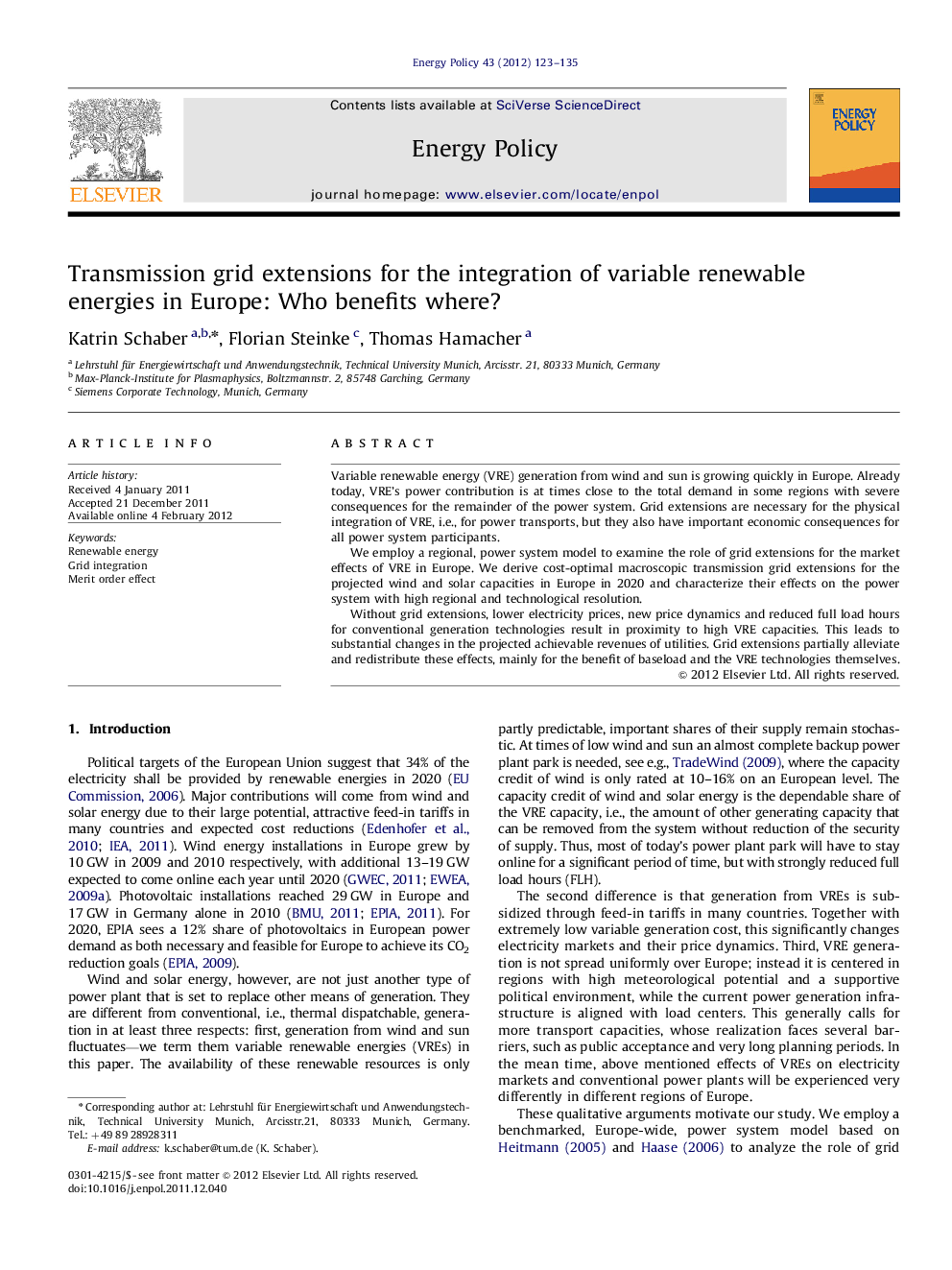| Article ID | Journal | Published Year | Pages | File Type |
|---|---|---|---|---|
| 994844 | Energy Policy | 2012 | 13 Pages |
Variable renewable energy (VRE) generation from wind and sun is growing quickly in Europe. Already today, VRE's power contribution is at times close to the total demand in some regions with severe consequences for the remainder of the power system. Grid extensions are necessary for the physical integration of VRE, i.e., for power transports, but they also have important economic consequences for all power system participants.We employ a regional, power system model to examine the role of grid extensions for the market effects of VRE in Europe. We derive cost-optimal macroscopic transmission grid extensions for the projected wind and solar capacities in Europe in 2020 and characterize their effects on the power system with high regional and technological resolution.Without grid extensions, lower electricity prices, new price dynamics and reduced full load hours for conventional generation technologies result in proximity to high VRE capacities. This leads to substantial changes in the projected achievable revenues of utilities. Grid extensions partially alleviate and redistribute these effects, mainly for the benefit of baseload and the VRE technologies themselves.
► Analysis with detailed regional and benchmarked model of European power supply system. ► VRE additions cause lower revenues for conventional power plants. ► Grid extensions for VRE redistribute and alleviate this effect. ► Baseload and VRE technologies themselves benefit most from grid extensions.
